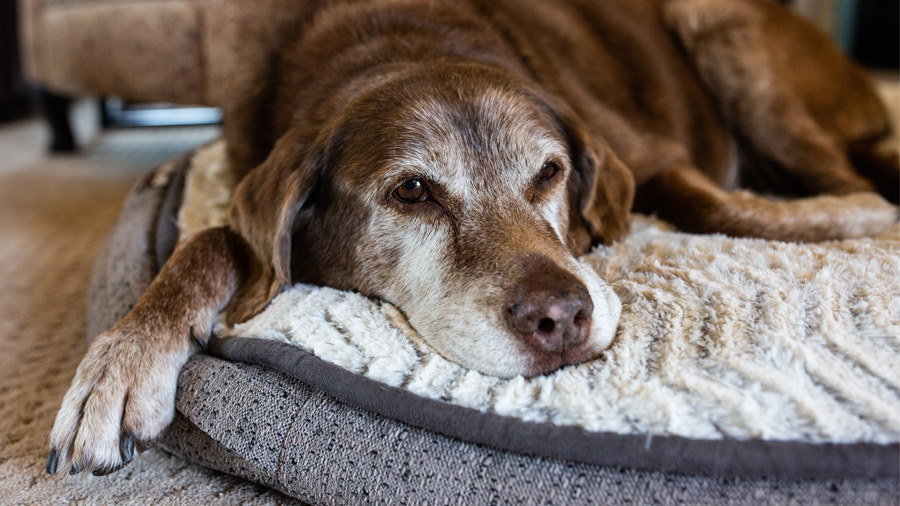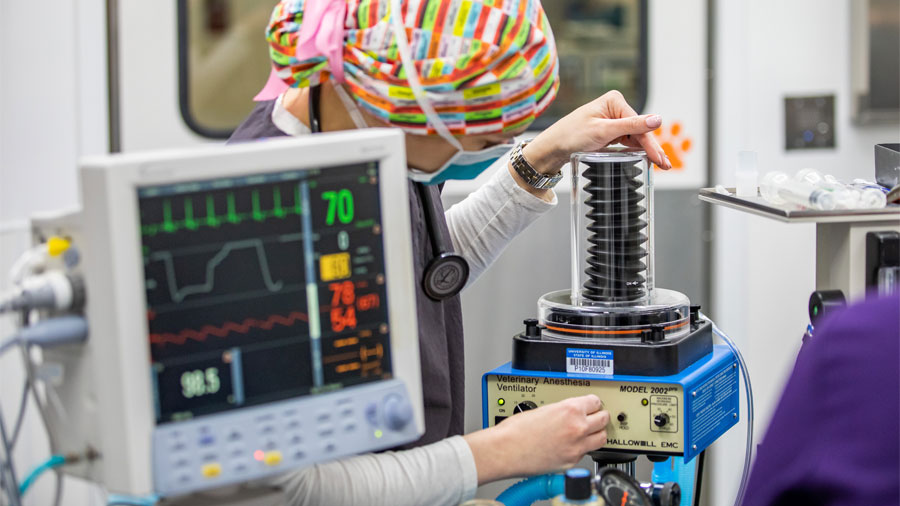Rabbits’ teeth grow throughout their lifetime
A diet of grass and hay is a real grind for your pet bunny’s teeth. That’s why rabbit teeth have evolved to grow continually, to accommodate the wear and tear of their coarse, fibrous food.
According to Dr. Krista Keller, a veterinarian at the University of Illinois Veterinary Teaching Hospital in Urbana, dental disease is a common disorder in pet rabbits. Because the teeth are such an essential part of rabbit digestion and overall health, rabbit owners need to provide an appropriate diet and regular veterinary visits.
“Rabbits’ dental anatomy is designed to allow them to eat grass, weeds, and hay,” explains Dr. Keller, who is board certified in zoological medicine and specializes in exotic species. “Their fibrous diet grinds down their teeth, so rabbits need teeth that continue to grow throughout their entire life.”
Born That Way, or Gone Bad
Dental disease in rabbits occurs when their teeth grow in the wrong direction or grow abnormally long. These problems may be congenital or acquired.
![[X-rays of rabbits with and without dental problems]](https://vetmed.illinois.edu/wp-content/uploads/2021/04/pc-keller-bunny-skull.jpg)
Poor diet is often the culprit in cases of acquired dental disease. If a rabbit is not fed the appropriate high-fiber coarse diet, it will not wear down its teeth properly, and the teeth will grow too long.
Dental Disease Causes Pain
“Because they are a prey species, rabbits innately hide any signs of disease. Consequently, by the time a veterinarian diagnoses dental disease, very often that animal has been suffering for a prolonged period,” says Dr. Keller.
One consequence of dental disease in rabbits is oral pain. Rabbits in pain may be less interested in food or may not eat at all. They may also be picky about their food and select softer options (pellets, produce) that are more comfortable to chew. Their fecal balls may be small, the rabbits may be less active, and infections may be likely to develop in the mouth and throughout the body.
“Rabbits with these signs should be evaluated by a veterinarian, who may need to perform diagnostic tests to determine the nature of the dental disease,” Dr. Keller explains.
Luckily, most cases of dental disease in rabbits are treatable and with proper husbandry can be managed over the course of the pet’s life.
Treatment and Prevention of Dental Disease in Rabbits
“The initial goal of the treatment is to make the painful patient more comfortable, restore adequate hydration, and deliver appropriate nutritional support,” says Dr. Keller. “Then, most rabbits with dental disease will require dental procedures such as tooth trimming or extractions, which must be performed while the rabbit is under anesthesia. With ongoing dental care and periodic trimmings, rabbits should be able to live a happy, pain-free life.”
The best way to prevent dental disease and keep the teeth healthy is to feed an appropriate diet. Dr. Keller advises giving rabbits unlimited access to grass hay (not alfalfa) and a limited amount of a rabbit pellet that doesn’t contain alfalfa.
Just like dogs and cats, pet rabbits should visit a veterinarian annually. During the examination, the veterinarian will screen for dental disease using a special tool to evaluate the molars.
“Rabbits make great companion animals,” assures Dr. Keller, “and it’s important for rabbit owners to learn all they can about providing the proper diet, housing, and veterinary care to ensure the best health for their bunny.”
If you have any questions about dental disease in rabbits, contact your local veterinarian.
By Hannah Beers

![[Dr. Krista Keller poses with a pet rabbit]](https://vetmed.illinois.edu/wp-content/uploads/2021/04/pc-keller-rabbit.jpg)


